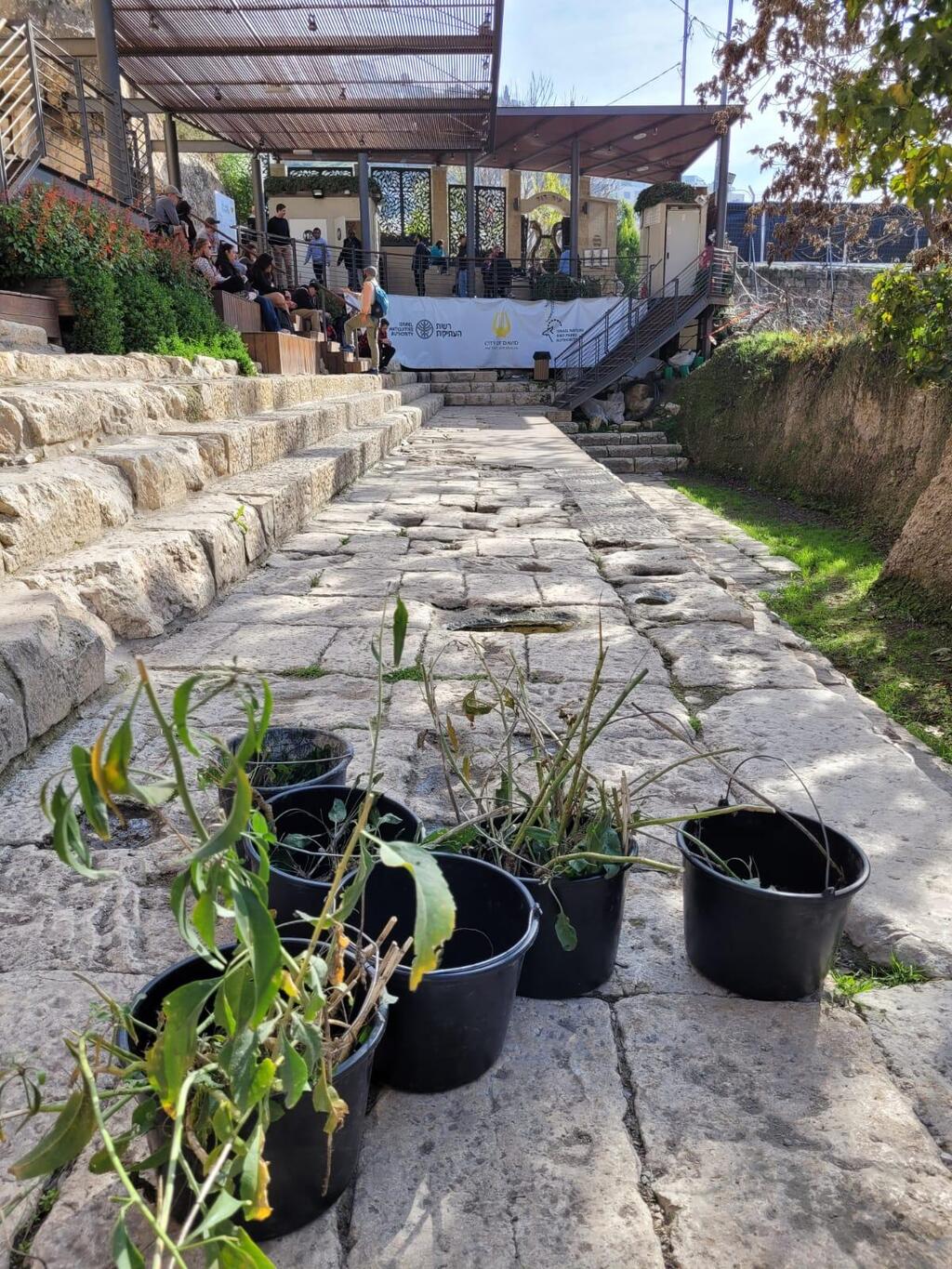Before archaeological excavations in the Siloam Pool commenced, a special operation was carried out to rescue an endangered plant species. Personnel from the Israel Nature and Parks Authority, together with botanical garden experts in Jerusalem, worked in recent days to transplant several specimens of the “Tall Pepperwort” species from the Siloam Pool area in the City of David, located within the Jerusalem Walls National Park.
“The Tall Pepperwort” is a perennial herb that mostly grows on the banks of streams, slopes, and springs. The plant is currently found in the Upper Galilee, Hula Valley, northern Golan Heights, Lower Hermon, Jezreel Valley, Carmel Coast, Sharon region, and the Judean Mountains. This plant, classified in Israel as an endangered, red-listed species, was discovered by a City of David site worker about two months ago, just before the start of archaeological excavations to uncover the pool, which will be conducted by the Israel Nature and Parks Authority, the Israel Antiquities Authority, and the Elad Association. The Israel Nature and Parks Authority stated that this discovery allowed for the safe transplantation of the rare plant and prevents any harm to it during the excavations.
The Israel Nature and Parks Authority emphasized that the fact that this plant was discovered in the Siloam Pool, which has not yet been excavated, is evidence, among other things, of the existence of a past aquatic environment.
After the definite identification of the plant by Dr. Margareta Volcheck, the plant ecologist of the Israel Nature and Parks Authority, two actions were decided upon: transplantation and propagation. In recent days, several plants were transplanted to protected areas in the vicinity of Jerusalem, including sites and national parks such as Ein Hemed, Ein Haniya, Ein Lavan, the Gazelle Valley, and the Botanical Garden on Mount Scopus. Additionally, other specimens of the species were transferred to the Botanical Garden in Givat Ram, where efforts will be made for its propagation.
In Israel, there are seven species of pepperwort, and the Hebrew name of the plant describes the branching of its stems into multiple dwellings or compartments, resembling the chambers of the species. The name “Shahalim” is mentioned in the Mishnah in the tractate of Ma’aserot as a plant from which both the seeds and the leaves are tithed because they are fit for consumption.
The Tall Pepperwort is the tallest among the species of “shahalim” in Israel, and it is identified with the “Adel”, mentioned in the Mishnah as a plant that does not impart ritual impurity to food until it is sweetened, meaning it is eaten after a process of salting or cooking in wine, vinegar, or salt. Maimonides describes the Adel as a well-known plant, indicating its widespread distribution in the past.
The Siloam Pool, located in the southern part of the City of David, within the area of the Jerusalem Walls National Park, has appeared in the news recently with reports that it will be fully uncovered and opened to the general public. The pool is an archaeological and historical site of national and international significance, built for the first time as part of Jerusalem’s water system in the 8th century BCE. The pool collected the waters of the Gihon Spring, which were conveyed to it through the Siloam Tunnel, and it has been one of the most important areas in Jerusalem since the days of the First Temple.




